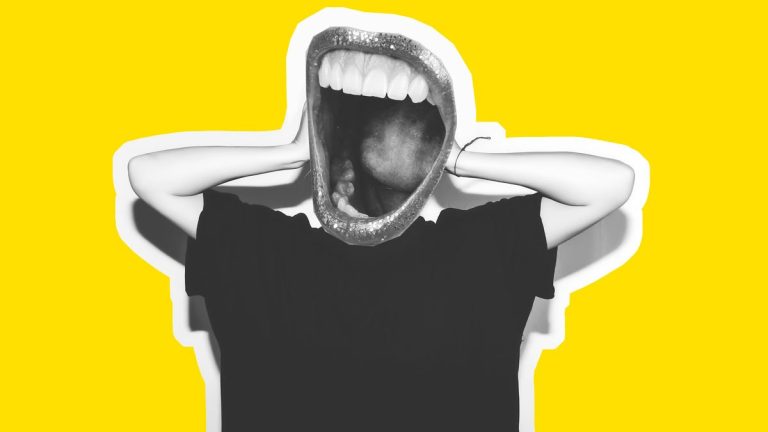
In the early 1990s, feminism had lost a bit of its appeal to younger people. They continued to fight for female representation in companies, in governments…. but that to the American adolescents of the time, as important as it was, caught them a little far.
They experienced closer problems: there was frustration, lack of references, a lot of sexual violence, little self-confidence and the threat of setbacks in the right to abortion. In this climate, and as a reaction to the sexist attitudes that were prevailing in the American punk scene, the riot grrrl movement arose.
The band emerged with the intention of promoting female participation and building a feminist community through the punk scene.
The riot grrrls were girls who said enough. They asked the women to go to the front row. Of concerts and life. That they stop being mere spectators or secondary characters and take center stage in their projects. They proposed that they pick up instruments, write, create, make fanzines, mobilize politically, love each other… Amateurism didn’t matter because what mattered was what they had to say.
And in this movement, Bikini Kill were one of the spearheads. Originally from Olympia, a university town very close to Seattle, they were formed at the beginning of the 90s. The band emerged with the intention of promoting female participation and building a feminist community through the punk scene.
Three women and a man dedicated to the same mission: to build networks of girls who played, put on concerts, expressed themselves artistically or made fanzines.
Women in music as cultural resistance. Or Revolution Girl Style Now, as her drummer Tobi Vail called it. Its singer Kathleen Hanna, among many other things, was unintentionally responsible for the title of the song that broke Nirvana.
At the time, she and Tobi were dating Kurt Cobain and Dave Grohl, who were then living in Olympia. One night they came back from making pro-choice posters and passed by her house, spray in hand and a few beers in their bodies. And Hanna had the idea of painting on the wall of Cobain’s room some bullshit: “Kurt smells like Teen Spirit.”
If in her most insane facet she was capable of baptizing the song that would pierce our heads soon after on the radios of half the planet, in her most revolutionary facet Hanna knew perfectly well what she was talking about in the combative lyrics of Bikini Kill. She worked helping women victims of sexual abuse and domestic violence, and her day-to-day life was listening to real stories of abuse and sexual assault.
Bikini Kill took on the shriek that had served as the intro to a song by Brits X-Ray Spex more than a decade earlier: “Some think young girls should be seen but not heard, but I say: fuck it!” to oppression!” And during their seven years of life, they were the most visible part of the riot grrrl movement.
With highly vindictive lyrics and concerts that did not avoid confrontation, they took their message to all corners of the United States and to a few abroad. Always in a minority circuit, but leaving a mark. And living with the controversy.
Now it’s a celebration of feminism. And a rallying cry for girls who want to take ownership of their lives and find their place in music
Because we were almost in the 21st century and Bikini Kill played in places where women’s equality was guaranteed by law, but their messages were not always well received. They were accused of hating men, there were bomb threats in the places where they played, objects were thrown at them and insults were the order of the day.
On more than one occasion they were afraid to go on stage. And the most extreme time, while they perfectly heard a horde of thugs outside the room shouting outbursts full of violence, they only managed to find the strength to go out and play when the girls in the audience began to chant Rebel girl.
«When she talks I hear the revolution
In her hips there’s revolution
When she walks the revolution’s coming
In her kiss I taste the revolution»
Rebel Girl arrived in 1992 and soon became the anthem of riot grrrls. Personal relationships within Bikini Kill were not at their best. They had tightness. They had moved across the country, to Washington, DC, and the change hadn’t been easy. It was not all rosy within the group. But they managed to focus their creative energy and give birth to a song that distilled fury, sonority and a certain adolescent innocence at the same time.
A song of which three versions were recorded in just three years. Raw and rough at first, Rebel girl became poperized when it reached the hands of Joan Jett. The Californian produced the most melodic version of it, although the song did not lose an iota of its power.
It was never a commercial success, but from the beginning it was an anthem. Thirty years have passed since its publication and Rebel Girl has only grown. Now it’s a celebration of feminism. And a rallying cry for girls who want to take control of their lives and find their place in music.
It is included in many music education programs and continues to play in the Rock n Roll Camps for Girls, those mostly female camps in which, through music and with Rebel girl as a soundtrack, the foundations are laid to fight against sexism , racism and discrimination in adult life.